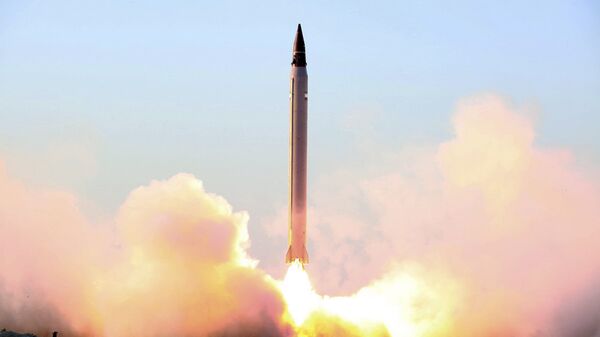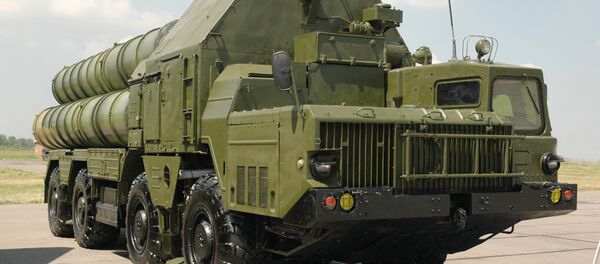"Any one bearing greater enmity towards Islamic Iran will naturally be more fearful of such capabilities and preparedness," Major General Mohammad Ali Jafarri, chief of the IRGC, said Tuesday.
His comments came during the final stage of the missile exercises code-named Eqtedar-e-Velayat, carried out by IRGC Aerospace Division.
The drills involved coordinating ballistic missiles launches from across the country. According to an IRGC statement, this was aimed at proving Tehran’s "deterrence power" and the nation’s "full readiness to confront all kinds of threats against the [Islamic] Revolution, establishment and [Iran’s] territorial integrity."
This followed the test-firing of a precision-guided long-range missile last October, which sparked outrage among officials in the United States. The US Department of the Treasury applied new sanctions against Iranian companies and individuals in response to the test.
On Tuesday, Jafari stressed that these latest drills were meant as a response to new Western sanctions, and that international penalties have helped Tehran achieve self-reliance and, ultimately, improve its missile capabilities.
New sanctions came mere months after Iran and the P5+1 nations – including the US, UK, Russia, China, Germany, France – agreed to the nuclear deal. In exchange for Tehran limiting its uranium enrichment capacity and allowing United Nations inspectors into the country, UN sanctions against the Islamic Republic would gradually be lifted.
Washington maintains that the new ballistic missile sanctions are unrelated to those repealed by the nuclear accord.
The commander added that Eqtedar-e-Velayat demonstrates Iran’s ability to defend the region.
"Iran’s security is the security of regional countries and our efforts are in line with establishing security in the region," he said, according to Press TV.
Tehran has repeatedly stressed that its missile program is purely defensive in nature, and that it poses no threat to other countries in the region.




